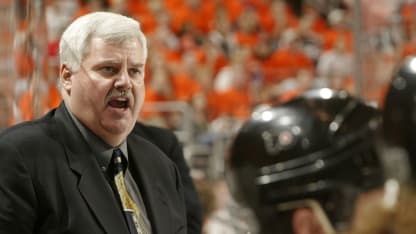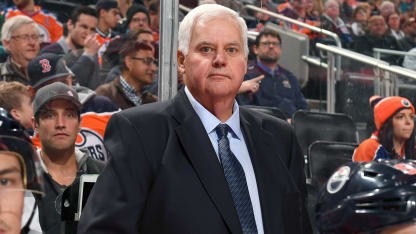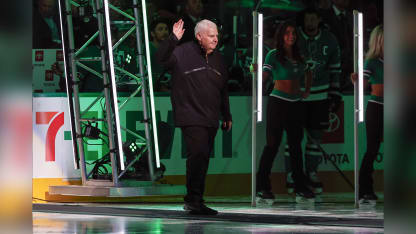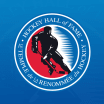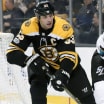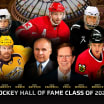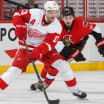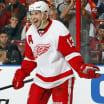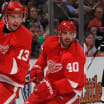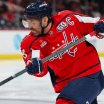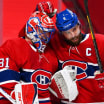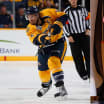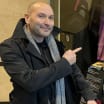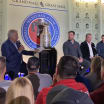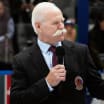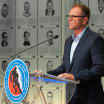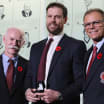Ken Hitchcock's coaching resume includes stints with five NHL teams from 1995-2019, part of a 40-plus-year career that saw him make stops at all levels of hockey.
His success, including winning the Stanley Cup with the Dallas Stars in 1999, is part of why he's being inducted into the Hockey Hall of Fame in the Builders category as part of the Class of 2023 on Nov. 13.
The only line listed on Hitchcock's biography for the 2004-05 season is assistant coach for Canada at the 2004 World Cup of Hockey because the NHL canceled that season due to a lockout.
What's missing, however, was a continent-wide tour spreading the gospel of the game. From Princeton to Penticton, Hitchcock traveled far and wide, sharing his hockey knowledge with anyone who would listen.
"He was an open book," said Mike Haviland, coach of the Trenton Titans of the ECHL at the time. "He was everything. He wasn't like, 'No, I can't give you that.' I asked him about systems. He was very gracious on everything. He just loves hockey. You could tell the passion he had for it."
It was a passion Hitchcock, then coach of the Philadelphia Flyers, had to share because of the help he received as a young coach.
"When I started out coaching, I had a bunch of college coaches and university coaches in Alberta that gave me a leg up," he said. "I had a conversation with one of the coaches and he said, ‘You're getting all of this information because we feel that it's important that you have a clear understanding of what it takes to coach and be successful. But what we're asking for from you is that you do move it on. You pass it on, and you share it.’"
Haviland, now an associate coach with Cleveland of the American Hockey League, was one of many coaches to benefit.
"I remember 'Hitch' calling … and [he] said, ‘I'd like to come down and get on the ice,’ and I couldn't be more thrilled," Haviland said. "As a young coach, to have 'Hitch' come down and pick his brain ... he spent hours. We let him run practice, picking his brain after practice sitting around the office, learning about bench management and practice, how he runs practice, how he runs video.
"Being a young coach, you're just being a sponge and learning from a guy who had won the Stanley Cup and had done so much up to that point already in his career. You just try to take everything in."
Guy Gadowsky, who was about to start his first season as the men's hockey coach at Princeton University, reached out to Hitchcock for recommendations for his staff.
"I called him to see if I could borrow a goalie coach," Gadowsky said. "He said, 'Well, I don't know what they're doing, but I'll come help you out.' It's like, great."
Hobey Baker Memorial Rink made Princeton an easy, and surprisingly frequent, place for Hitchcock to visit.
"That entire season he came at least once every week," Gadowsky said. "Every home weekend he was there, except he'd go hide in the stands. He'd go up in the rafters and no one would know who he was. And he gave us unbelievable feedback every week. Then weeks when we were on the road, he would have us send him VHS tapes, and he'd go over them and we could ask him questions. So for our staff, it was an absolute doctorate in coaching."
The players on that Princeton team got as much out of the experience as Gadowsky did.
"It was certainly exciting," said Kevin Westgarth, a sophomore forward that season. "Definitely surreal. As a bunch of guys, I don't want to speak for everybody, but who certainly always looked at the NHL as a dream and maybe not entirely as a goal, but certainly trying our best, to have clearly one of the one of the top coaches in the NHL come out to our practices, it was a thrill."
Hitchcock, a military history aficionado, said he got more than just a chance to satiate his hockey thirst.
"The payback for me was I was able to attend some classes," he said. "There was a fellow that was teaching history, and once or twice a month I would take part in his classes where I'd just go in, sit in the front row of one of his classes. Especially when the history was about military stuff, whether it was Civil War, Revolutionary War, World War I or World War II, I would just go into his class and learn."
Westgarth played five seasons in the NHL and won the Stanley Cup with the Los Angeles Kings in 2012. He now works as NHL vice president of hockey development and strategic collaboration and believes being around Hitchcock helped raise his level of professionalism.
"We changed what we did a little, I think in all pretty positive ways," he said. "It was a year for having those moments of realizing maybe some of the differences between the college level and the NHL level.
"I think it was a lot of the details. If we were kind of listening to the coach or something, we were probably a little casual -- I used to sit on the boards and stuff like that. It's not completely game-changing, but it is sort of a leading indicator of like adjusting to ... the way that we handled our gear, hanging our gear, having our socks ... basically consistency through the locker room was much more important, and I think ... really just sort of professionalized, or made us think much more like pros."
Vince Williams, a Trenton defenseman in 2004-05, also saw the benefit from being around Hitchcock, as a player and then into his time coaching in the ECHL, with a drill he took from Hitchcock.
"To this day, Mike Haviland will use 2 vs. 2 Hitch, which we called it, and from there it went with (teammate and current coach of Bridgeport in the AHL) Rick Kowalsky,” said Williams, now a scout for the Vegas Golden Knights. “We used 2 vs. 2 Hitch when I was still working with Rick and then I used the 2 vs. 2 Hitch. There were a few drills that were drills that we inherited that we used and passed on for years to come."
Between trips to Princeton and Trenton, Hitchcock ran coaching clinics in the Central Hockey League and in western Canada, leaving behind a bevy of adoring hockey coaches who will be watching when he takes his place in the Hockey Hall of Fame.
Including Gadowsky, who is in his 13th season as men's hockey coach at Penn State and meets with Hitchcock every summer.
"I think it's wonderful," he said. "It's obviously very, very appropriate. I'm so pumped for him. It's an unbelievable honor but incredibly well earned and deserved. ... He did nothing to be public about it. He allowed us one day to have media and then every time after he said, ‘I don't want media, I don't want to do this for that.’ He does things because of the love of hockey and to help people, help players, help staff. That's why he did it. And I love that it's that kind of guy that's getting this accolade."
Hitchcock felt it was his duty to help and is proud that he made an impact on the next generation of coaches the way he was helped on his way up the ladder.
"I just feel like it's my job and it's my obligation because people helped me and they gave me a leg up, and making sure that I pay it back is really important," he said. "I'm not afraid to share the information. I think it makes everybody better. I had to get out of that NHL mindset to do it, but I did it. And I'm proud of that. I feel like I helped them a little bit because someone helped me along the way."
